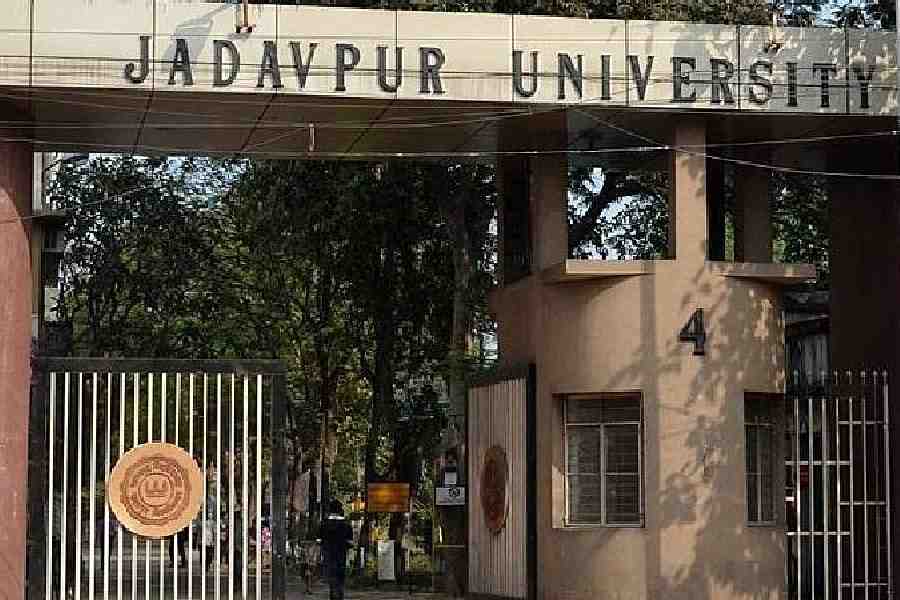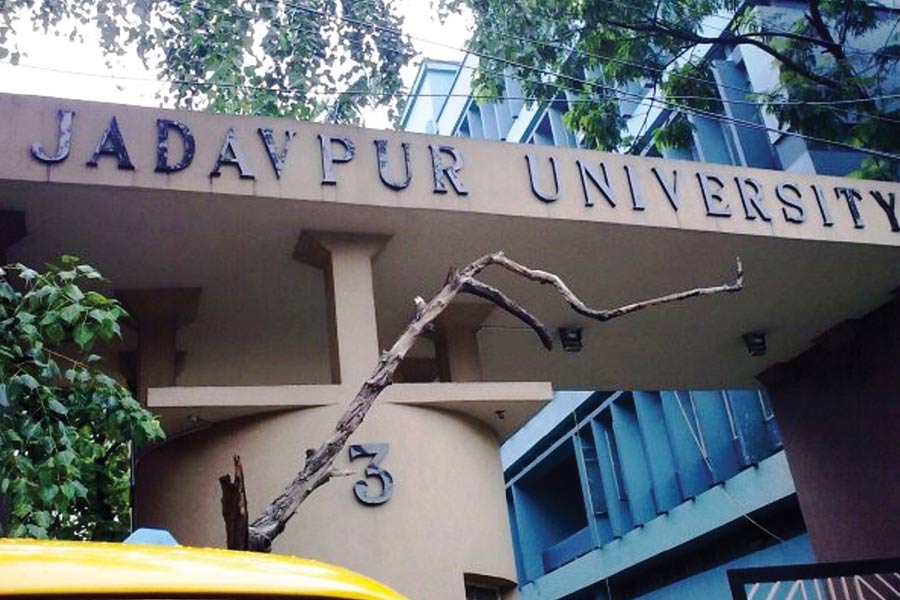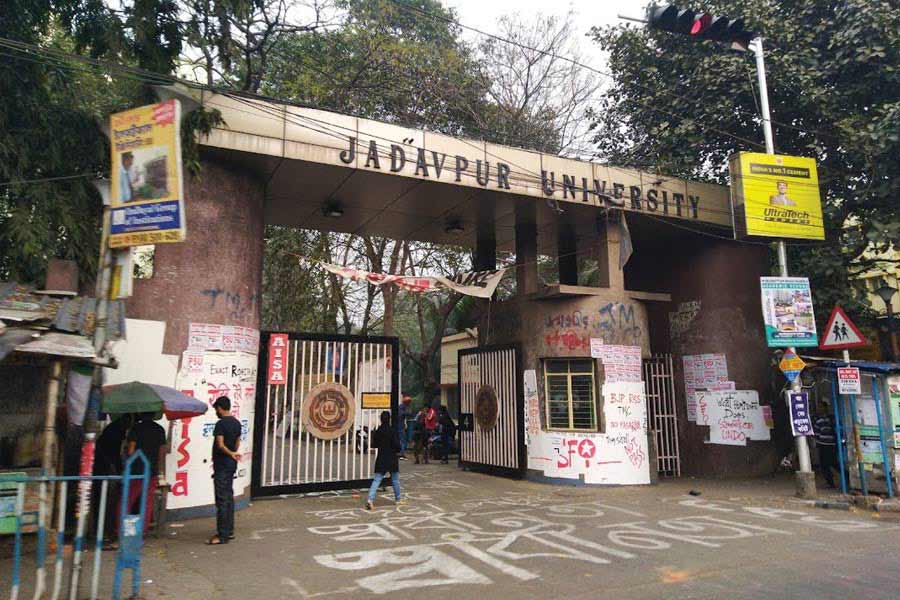A double rap in the knuckle from two highly “dissatisfied” commissions – the University Grants Commission and the Bengal Commission for Protection of Child Rights – and a “fact finding team” constituted by the Mamata Banerjee government to “identify administrative lapses and infrastructure gaps” at Jadavpur University in the wake of the student’s death on account of the alleged persisting ragging menace seems to have put the institution authorities in a tight spot.
A hastened move to issue a circular by the university authorities – spelling out entry regulations inside the campus and prohibiting consumption of narcotics and alcohol within institution premises – on Thursday was looked upon by stakeholders as a step that’s “too-little-too-late”. That’s notwithstanding the additional appeal sent out by the university registrar Snehamanju Basu asking all concerned “to come together at this hour of crisis and ensure that we carry out our roles and responsibilities in the campus in a spirit of amity, collegiality and mutual cooperation”.
The UGC’s letter, which comprised 12 queries connected to the implementation of commission’s regulations on curbing ragging menace, was shot on Thursday in the wake of the University’s earlier response to a previous set of queries sent in the aftermath of the minor student’s death which the country’s higher education governing body found “very generic in nature basically mentioning therein mostly the reactive approaches adopted in the matter rather than proactive measures taken to curb the menace of ragging”. “Therefore, the Commission is not satisfied with the report submitted by you,” the communication, signed by Manish Joshi, secretary, UGC, added.
The UGC queries ranged from asking the authorities whether telephone numbers of anti-ragging helpline and important institute functionaries responsible to curb ragging are printed on admission brochures and whether copies of leaflets containing those numbers are distributed among students, to whether the university received affidavits from hostel applicants and their parents stating they understood the regulations and punishments prescribed.
Questions were also asked about whether the victim and his parents had signed additional affidavits stating his desire to stay in hostel and whether the authorities convened a meeting of all stakeholders, including law enforcers, before commencement of academic session to prevent ragging and steps that would be taken to identify and punish the guilty. Whether freshers were lodged in separate blocks and access of seniors to the block was monitored and whether the university conducted surveys among freshers every fortnight for the first three months to verify ragging incidents also formed part of the UGC questionnaire.
A deadline of 24 hours for submitting compliance to the queries for the current year and 10 days for the last five years was given by the UGC to JU authorities, failing which appropriate as per commission regulations would be taken against the university, the letter stated.
Responding to the UGC letter registrar Basu, in what sounded like a U-turn from her Wednesday’s remarks where she claimed that the commission was prima facie “satisfied” with the University’s response and had decided to put off its scheduled visit to the campus, said, “It must have been a miscommunication. There’s no way for me to know whether they were satisfied or not. The commission’s officer concerned had acknowledged our response to their initial queries and had decided to keep their visit on hold. We have now forwarded their letter to the dean of students who would respond citing official records.”
Meanwhile, the state’s child rights panel, which had previously show-caused the university for failing to protect the minor, expressed “extreme unhappiness” at the registrar’s response to the panel’s notice. The panel issued a second show-cause notice to the university on Thursday seeking explanation why proceedings should not be initiated against the institution for violating UGC norms and a Supreme Court direction on the issue of ragging.
“The Commission feels that this response reflects the gross insincerity of the University administration where they have tried to shrug off all responsibilities of the said incident instead of accepting and acknowledging their failure and failing to chart out a road map towards systemic reforms in order to eradicate ragging and other malpractices from the University campus. The Commission is deeply disappointed in the hatchet job that the University authorities seem to be doing in order to cover up their incompetence and lack of intent in resolving the problem,” a statement from the right’s panel read.
Besides the scathing observations of the two commission’s the Bengal government, too, formed a four-member fact finding team under the state higher education department to “identify and ensure corrective measures” for “certain administrative lapses and infrastructure gaps at Jadavpur University”.
The government “has taken serious views on the incident of unfortunate death of a first-year student within the campus of Jadavpur University due to alleged ragging which is under investigation by the Investigating Agency,” a state notification read and affirmed that the team would be led by the member secretary of the West Bengal State Council of Higher Education and submit its report to the department within two weeks.
The developments coincided with the university’s own circular signed by the registrar which sought to allow entry inside campus from 8 pm to 7 am to only those carrying valid identity cards and allow vehicles with university-issued stickers. Those without stickers must provide registration numbers with security guards at the entry gate, the circular read, adding: “Use of narcotics/alcohol or other illegal substances and any illegal acts in any part of the campus is strictly prohibited. If anyone is found with such activity, he/she will be prosecuted as per law,” the circular stated.
Asked whether the university has decided to install CCTV cameras at designated locations inside the campus, Snehamanju Basu said: “That’s a decision which only the Executive Council of this university can take.”












